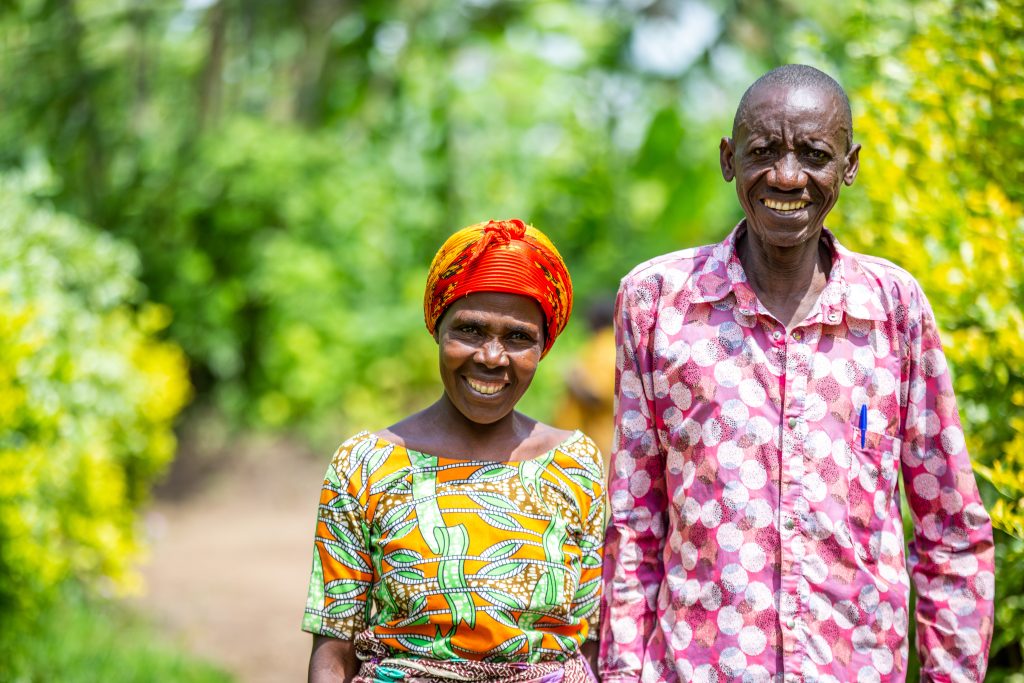In Rwanda, “Malayika Murinzi,” or “Angel Guardians,” are parents who take on the noble responsibility of raising children who cannot be reunified with their biological families. Malayika Murinzi ensures children in need have a safe place to stay, whether through formal or informal, temporary or permanent family care. The history of this vital role is deeply intertwined with the country’s journey through unimaginable tragedy and its relentless drive toward healing and rebuilding.
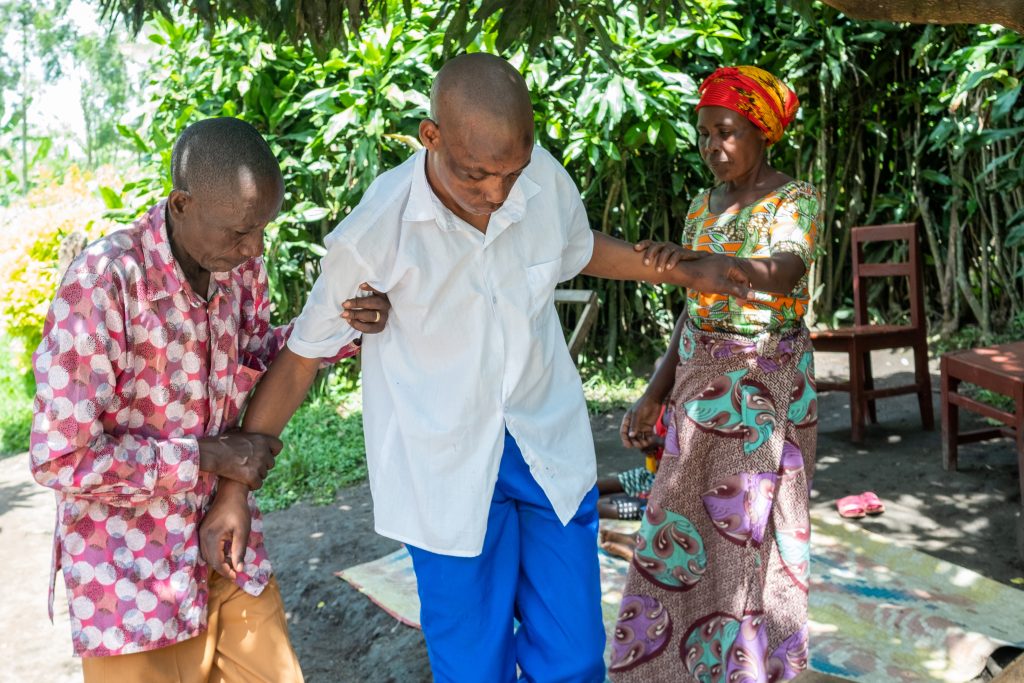
A Legacy of Compassion
The 1994 Genocide against the Tutsi left an indelible mark on Rwanda, shattering families and communities. Amidst the horror, thousands of children lost their parents or were separated from their families. In this context, the role of Malayika Murinzi became paramount. These selfless individuals and families stepped forward to restore the rights and dignity of these children, offering them the love and stability they had been cruelly denied.
Malayika Murinzi have not merely provided shelter; they have given these children a sense of belonging and identity. By welcoming these children into their own families, they have played a crucial role in nurturing the future generation, fostering resilience, and building a nation rooted in compassion and care.
A Journey through Time: The Evolution of Malayika Murinzi in Rwanda
Traditionally, Rwandan society relied on extended families (kinship care) and close-knit community ties to care for children. Orphanages did not exist as the cultural norm was for orphans and children in need of parental care to be looked after by relatives or friends of the family, ensuring they remained within familiar and family environments. Orphanages were introduced by colonialists under the patronage of the church, which was intertwined with the state organs.
The genocide brought unprecedented social upheaval. Not only did the genocide against the Tutsi inhumanly take the lives of hundreds of thousands of children, but it also left hundreds of thousands of children without families or separated from them. Traditional family structures that once provided care were destroyed, leaving more than 95,000 children without parental care or family support. An estimated 101,000 children found themselves in approximately 42,000 child-headed households, with countless others left vulnerable and unsupported. In the aftermath, the Rwandan government, supported by local and international NGOs, initiated efforts to reunite children with relatives and emphasized the irreplaceable role of Malayika Murinzi. Recognizing the detrimental effects of institutionalization, these efforts prioritized family care.
To honor the incredible care given to abandoned children by families without blood ties, First Lady Jeannette Kagame launched an inspiring initiative. This program rewarded exceptional families who have excelled in caring for these children. It’s known by two complementary concepts: “Malayika Murinzi,” meaning “Angel Guardian,” and “Wite ku mwana wese nk’uwawe,” which means “Treat Each Child as Your Own.”
Over time, Rwanda has achieved considerable progress in creating a strong system of Malayika Murinzi. This includes comprehensive assessments, specialized training programs, and ongoing support services, all aimed at preserving family environments, encouraging family reunification, and ensuring permanent placements through adoption when suitable.
Transformative inclusive child care reform
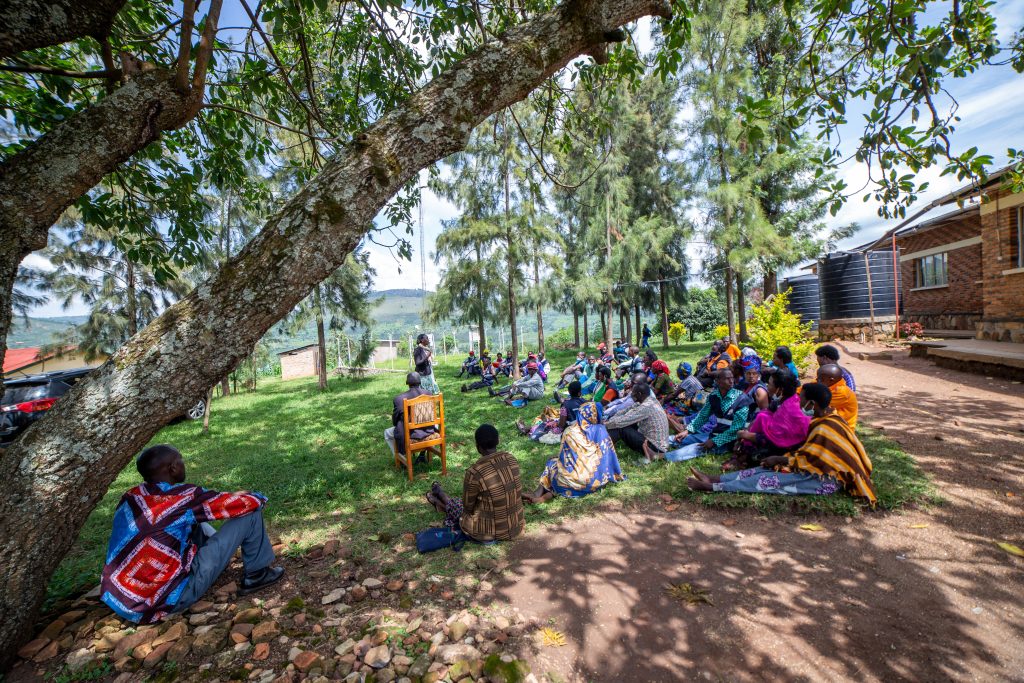
*Training of Malayika Murinzi: Malayika Murinzi engaging in discussions about the issues affecting children in their community.
In March 2012, the Cabinet of Ministers approved the National Child Care Reform Strategy, delineating the necessary steps to restore the rights of Rwandan children living in institutions and ensuring their right to grow up in a caring, secure, and nurturing family environment. The Government of Rwanda established the National Commission for Children, now known as the National Child Development Agency, and implemented a framework to enact the child care reform through the Tubarerere Mu Muryango Program.
Since then, Rwanda has developed a skilled workforce of social workers and psychologists dedicated to implementing the child care reform. Institutional care, once prevalent for children deprived of their families, has been supplanted by the strengthened role of Malayika Murinzi to ensure that no Rwandan child without the possibility of family reunification suffers from confinement in an institution setting.
Recognizing the critical need for stable, nurturing homes, the Government of Rwanda refined the concept of Malayika Murinzi, making it the cornerstone of child care reform. Malayika Murinzi ensure that there are no new entries into orphanages and institutions and that no child remains in an orphanage due to untraceable families. In partnership with NGOs such as Hope and Homes for Children, the government established a mechanism to meticulously identify and train Malayika Murinzi, providing effective care to vulnerable children, especially those from orphanages, including children and young persons with disabilities.
The Role of Hope and Homes for Children in Training Malayika Murinzi
Over the past decade, Hope and Homes for Children has played a crucial role in transforming child care reform in Rwanda. The organization has thoroughly assessed and trained 1,203 Malayika Murinzi families, successfully facilitating the placement of 267 children from orphanages into these nurturing homes. The Malayika Murinzi initiative has been vital to the success of the National Child Care Reform, particularly in addressing the complex needs of children and young persons with disabilities. Their steadfast commitment and significant efforts have ensured that these children are welcomed into family environments where they can thrive and receive the specialized care they need. The contribution of Malayika Murinzi families has been fundamental; they are the bedrock of a reformed system that upholds the rights and well-being of every child.
The Current Landscape of Malayika Murinzi in Rwanda
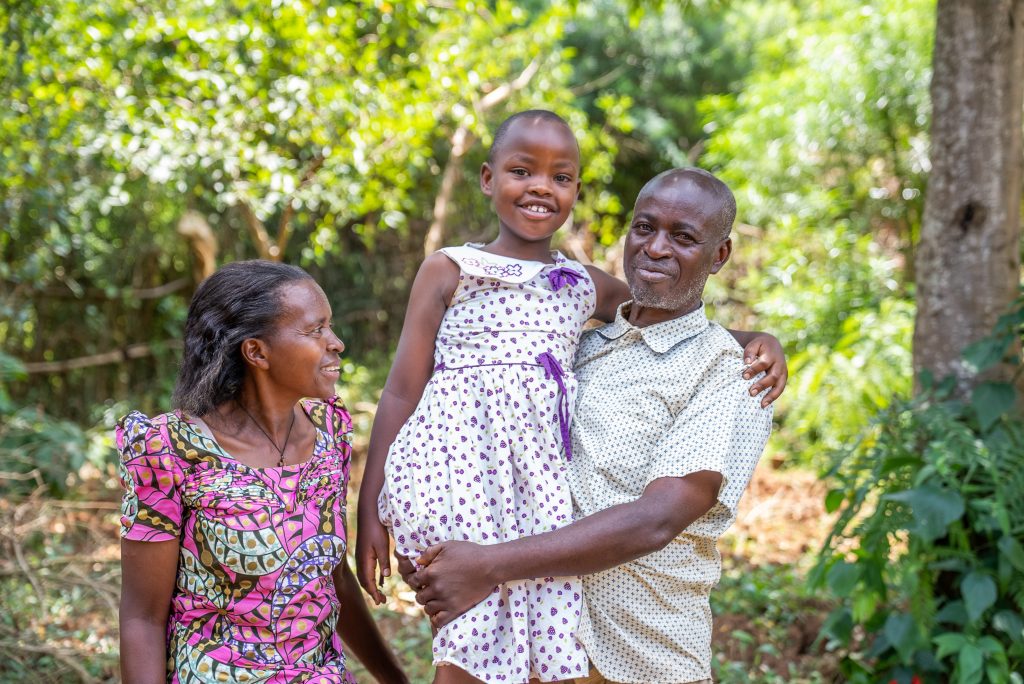
Meet the Malayika Murinzi who rescued Uwase from the orphanage. Discover the incredible story of Uwase’s journey.
Currently, Malayika Murinzi in Rwanda is a crucial and officially recognized component of the nation’s child protection system. Continual endeavors are being made to guarantee that children who require assistance are put in caring, stable, and healthy family settings. This demonstrates Rwanda’s steadfast dedication to prioritising the welfare of its most vulnerable children.
Malayika Murinzi is not just a mere system, but rather a vital support for many children. It offers children safety, emotional support, and a feeling of acceptance, protecting their best interests and nurturing their positive growth. Following social upheavals and the aftermath of genocide, Malayika Murinzi has become an important way to prevent institutionalisation, reconnect families, and provide children with the opportunity to flourish in nurturing environments.
The Malayika Murinzi, a home-grown solution, plays a crucial role in Rwanda’s efforts to heal, become more resilient, and achieve growth. Malayika Murinzi exemplifies the efficacy of homegrown African solutions in effectively tackling the region’s unique challenges.
They are not merely carers, but the very essence of conviction for a Rwanda free from orphanages. Their work serves as a moving illustration that despite facing insurmountable challenges, love and community can provide a path towards a more positive and inclusive future for everyone, ultimately transforming Rwanda into a society where there are no orphans or orphanages.
The National Child Development Agency’s exemplary leadership has made possible the celebration of National Malayika Murinzi Day on May 31st, 2024. This event not only signifies a key milestone in recognizing the achievements of Rwanda’s national strategy for childcare reform but also sets the stage for future annual celebrations dedicated to advancing and upholding these accomplishments.
